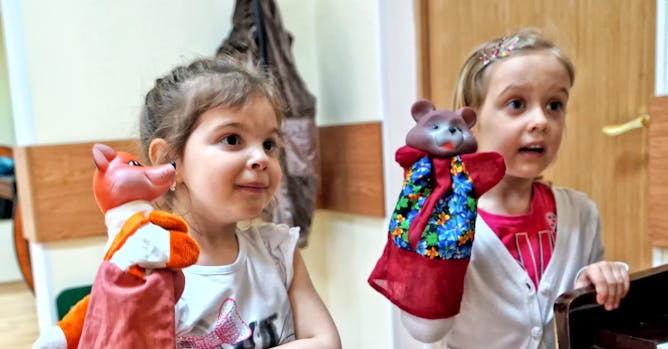|
Spring may be just around the corner, but in today’s The Conversation Canada, Jason Tetro from the University of Guelph looks back at winter. He explains how low ozone levels had the polar vortex swaying and staggering southward in a manner similar to drunkards, delivering bitterly cold temperatures.
Also in today’s edition, Jonathan Klein and Jonathan Livergant dispel the negative misconceptions of radiation therapy. It won’t make patients radioactive or cause pain, and it can help ease the suffering associated with some cancers. More doctors, they write, should refer their cancer patients for radiation therapy.
Ontario introduced its full-day kindergarten program in 2010. Part of its success lies in the team-based approach to curiosity-driven, play-based learning, write Janette Pelletier and Christina Moore from the University of Toronto.
And finally, we have a fascinating story about board games. Benjamin Hoy from the University of Saskatchewan explains how many of the games we play today were created long ago with specific lessons in mind, and not all of them are still teaching those lessons. Monopoly, anyone?
|

As we emerge from a polar vortex, understanding how it happens can help us understand climate change.
Shutterstock
Jason Tetro, University of Guelph
Alcohol consumption provides a useful metaphor for understanding the science behind the polar vortex.
|

Palliative radiation therapy is effective regardless of a patient’s original cancer site (for example breast, lung or kidney) and is usually delivered in one to 10 daily doses.
(Shutterstock)
Jonathan Klein, Albert Einstein College of Medicine; Jonathan Livergant, University of British Columbia
Palliative radiation therapy can improve a cancer patient's life, by alleviating pain and other symptoms. Unfortunately, some doctors associate the term with end-of-life care and fail to refer people.
|

Our youngest learners benefit when educators with complementary skills combine their expertise.
(Shutterstock)
Janette Pelletier, University of Toronto; Christina Moore, University of Toronto
The shared knowledge brought to full-day kindergarten from teachers and early childhood educators is part of why Ontario's program is so effective.
|

Do not pass GO! Monopoly was designed by a progressive writer to teach players the dangers of wealth concentration.
Shutterstock
Benjamin Hoy, University of Saskatchewan
Many of the board games we play today were originally created in the last century and they impart many interesting lessons about life.
|
Health + Medicine
|
-
Jean Twenge, San Diego State University
Some have called reports overblown, with others going so far as to call it a myth. But the data that continues to emerge tell a different story.
|
|
Business + Economy
|
-
Oihab Allal-Chérif, Neoma Business School
The 737 Max is the best-selling airliner ever. But two have crashed in five months, killing 346, damaging Boeing's future and raising questions about the increasing sophistication of cockpit technology.
|
|
Science + Technology
|
-
Daniel Jolley, Staffordshire University; Karen Douglas, University of Kent
If you believe a conspiracy theory about a specific minority group, you are more likely to have negative views about other, unrelated groups too.
|
|